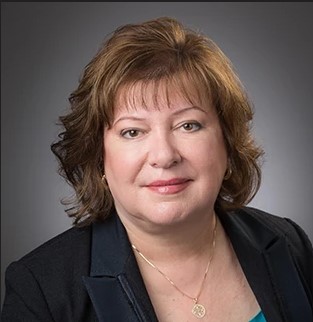
HERA Chair Dr. Vicki Martin, President of Milwaukee Area Technical College (MATC), shares her thoughts on how Southeastern Wisconsin’s higher education community is collaborating to better serve students and the region.
As Chair, do you have specific priorities or areas of emphasis in mind?
First and foremost, I want to make sure that we continue to strengthen our partnerships. We’ve had a lot of turnover in higher ed leadership. We need to continue to build those relationships and trust with new leaders. I’m also going to be focused on the value of HERA, for members and for business and community leaders in our region.
I want to move toward accomplishing our vision, which is to build a fully capable, educated and employed workforce and create an innovative and nimble regional talent pipeline. Right now, we are seeing a smaller K-12 population in our region but more jobs available. So how do we attract and retain talent not only at our institutions, but also in our community? We’re also going to keep that bold goal that we have front and center, which is increasing the number of post-secondary graduates in our region.
Collectively, we serve about 175,000 students in the region. And this work is going to get done in the goal groups, but our steering committee is probably going to lead a lot more discussion about the changes to our environment, and how HERA can really be the catalyst and the solution to what is happening in our region in terms of the talent pipeline.
How would you describe the level of collaboration among HERA institutions?
When we look nationally, I can tell you, it’s really unprecedented.
A subgroup of us is doing what’s called the Moon Shot for Equity through the education consultancy EAB – UW-Milwaukee, UW-Parkside, MATC, Carthage and now Gateway Technical College. Our goal is to completely eliminate equity gaps in higher education by 2030 — bottom line, we want to see students of color graduating at the same rate as their white peers. And when we talk to other colleges and universities across the country, this is not a typical collaboration. In fact, they’re very inspired by what we’ve been able to do, and a few of them have started looking at relationships that they have. Our group has come together in ways that other groups have not across the country, and we’re really proud of that.
We just published a joint online catalog of badges, or microcredentials, so our business partners can see these really important, in-demand, short-term offerings to help employees skill up. We see the change – 72% of workers in the U.S. say these alternative credentials are an affordable way to gain skills or experience. Especially younger employees who are beginning to use competency-based portfolios when they apply for jobs, rather than emphasizing broader educational achievement. And we have a lot of adults who don’t want to go through another degree, so they’re looking for short-term credentials and competencies that are really going to make a difference. And we’re seeing more employers looking at and valuing these programs.
We’re working on sharing best practices around proactive advising. It means using data and taking a preemptive approach that anticipates and helps eliminate roadblocks and barriers affecting student success through to graduation. For example, when we see students struggling in a particular course early in the semester, we will add the right support to ensure the student is successful. At our last meeting, we shared the model we’re looking at and asked all our member institutions to adopt it. We also have transfer agreements. We agreed early on that we would use the same platform, so that a student could see easily how to transfer.
No single institution is going to be able to solve any one of the problems that we are seeing. We know from our experience that we are stronger together, and it is going to take a collective impact – learning together, pulling together resources and sharing those resources as best we can.
As HERA works with industry to help develop the next generation of our region’s workforce, what are we doing well now, and how can our institutions become even better partners?
Right now, our strength is in that shared focus and intentionality. Making sure that we’re increasing access through some groundbreaking scholarships and the right supports to help students succeed. Advising is one of those examples. And many institutions have adopted a tuition promise or something similar that helps underserved students from lower-income backgrounds stay on track.
But we can always be more nimble and we can always be better partners.
When we look at Artificial Intelligence, for example, we had goal groups 2 and 3 collaborate with Cathy Heinrich, CEO of MKE Tech Hub. Ten area employers met with higher education institutions to identify collaborative opportunities and next steps. Specific recommendations are under review. One of the recommendations was, could we as a region have one course that would transfer among all of us that lays the foundation for what AI is, so that people have that knowledge base to start? Another piece that came out of that effort is that not all CEOs are aware of how they could benefit from AI or what some concerns might be. This is a great opportunity for us to build upon something new and different that not everybody is necessarily on the same page with.
What are the biggest opportunities and challenges you see in Southeastern Wisconsin’s higher education landscape?
We have recognized this since the beginning of HERA: We have got to have stronger relationships with business and industry. We’re seeing what almost amounts to a competition, because they’re not getting what they’re looking for in terms of upskilling and reskilling their employees. And they’re not getting enough numbers coming in.
One of the greatest things we can do is show employers that we can provide value beyond traditional degrees. We can do microcredentials and grow them. We can provide credits while students are working and learning on the job. I think that’s going to become a lot more seamless. We’re beginning to strengthen those relationships and listen more to business and industry, ensuring that they have the talent pipeline that they really need.
When we did a SWOT analysis, we came up with seven buckets. One of them is around equity — the biggest challenge and opportunity for Milwaukee in so many ways. Other opportunities are partnerships around specific employer needs. And we have more competitors, including national online competitors that have grown since the pandemic and competitors like Google offering those quick, easy credentials.
We have limited resources, so we are looking for funding. We know that many funders are interested in these large collaboratives because they move the needle much more greatly in a whole region rather than at one institution alone.
We know there’s a demographic decline of students. We know we have to get more adults back into the pipeline to be reskilled. We know that more and more people are questioning the value of higher ed, and part of that is student debt.
I think having people understand why HERA is important to the region and what we can produce is going to be critical.
Even with those challenges, what makes you optimistic about the future?
We already have a strong collaborative. We already have the trust established. We’ve made the commitment, and we have intentionality around what we need to accomplish. We’ve looked at what needs to be done in Southeastern Wisconsin. We’ll continue to grow those relationships and to attract the talent and keep it in Wisconsin.
